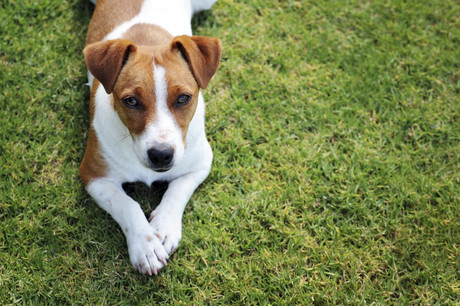Virbac to distribute new anticancer treatment for dogs

Australian life sciences company QBiotics has signed an agreement with Virbac, one of the largest dedicated animal health companies globally, enabling the latter to market and distribute its canine anticancer pharmaceutical, tigilanol tiglate.
Under the terms of the agreement, Virbac is granted the right to market and distribute tigilanol tiglate to veterinary markets in the USA, Switzerland, Norway, the UK and the EU on receipt of marketing authorisation. There is the potential of future expansion to other focus territories including Australia, New Zealand and Canada.
As many as one in four dogs will develop cancer at some time in their lives, and almost 50% of dogs over the age of 10 years will die of the disease. To date, there are only a very small number of registered treatments for cancer in companion animals (dogs, cats and horses).
Tigilanol tiglate is a new approach to the treatment of solid tumour cancers, discovered by applying QBiotics’ EcoLogic approach to drug discovery. It works through specific protein kinase C (PKC) activation, in which it locally stimulates the immune system resulting in destruction of the tumour mass as well as the tumour’s blood supply, followed by rapid healing of the site with minimal scarring.
Studies have demonstrated that tumour destruction usually occurs within 5–7 days with the site fully healed within approximately 3–4 weeks. In addition to destruction of the tumour, added benefits of the drug as identified in clinical trials include potential avoidance of limb amputation in the case of limb located tumours and minimal scarring of treatment site, supporting return to normal mobility.
Having demonstrated anticancer potential in a range of solid tumours in over 500 companion animals, it is expected that the drug will be registered under the FDA-CVM in the USA. The centralised European Medicines Agency (EMA) route will be taken for European veterinary registration of the drug, which will enable marketing authorisation for tigilanol tiglate with all EU countries; application for registration in other regions, including Australia, will then follow.
“With ageing dogs and only a small number of registered treatments for cancer in companion animals, there is a significant opportunity for new treatments in the veterinary market globally,” said Sébastien Huron, Chairman of Virbac’s executive board.
“We were impressed with QBiotics’ platform technology, EcoLogic, using compounds derived from the Australian tropical rainforest to identify astonishing drugs such as tigilanol tiglate, and we look forward to working with the QBiotics team to launch this innovative product in the USA, UK and EU before expanding to the rest of the world.”
“This agreement is a significant milestone for the company,” added Dr Victoria Gordon, QBiotics CEO and Managing Director. “We believe Virbac is the right partner for us to launch tigilanol tiglate in key international markets. Virbac has the expertise and global footprint to maximise the commercial success of tigilanol tiglate in major regions such as the USA and Europe. In addition, they join in QBiotics’ passion about the potential of tigilanol tiglate to address canine cancer for veterinary practitioners, dogs and their owners. Together with Virbac, we have now commenced the launch preparation for the drug.”
QBiotics’ commercial strategy is to bring tigilanol tiglate to major veterinary markets to create cash flow for further development of QBiotics technology in human cancers and wound healing. The company completed a proof-of-concept human clinical trial of tigilanol tiglate in patients involving four Australian hospitals, which is now in the final stages of report writing. Results from this trial are planned for submission to a peer-reviewed global scientific journal for publication as well as presentation at global pharmaceutical industry conferences.
argenx and Monash University partner against autoimmune diseases
To advance a pioneering molecule for autoimmune diseases, global immunology company argenx has...
Archer completes potassium sensing alpha prototype
Quantum technology company Archer Materials Limited has developed an early Biochip prototype...
Farm animals and aquaculture cryopreservation partnership announced
Vitrafy Life Sciences Limited has announced that it has entered a 12-month exclusive agreement...



